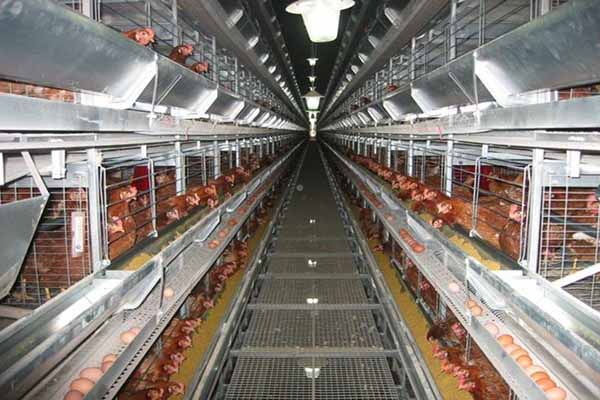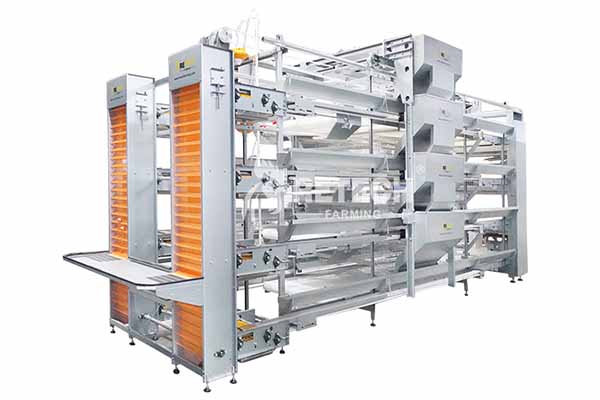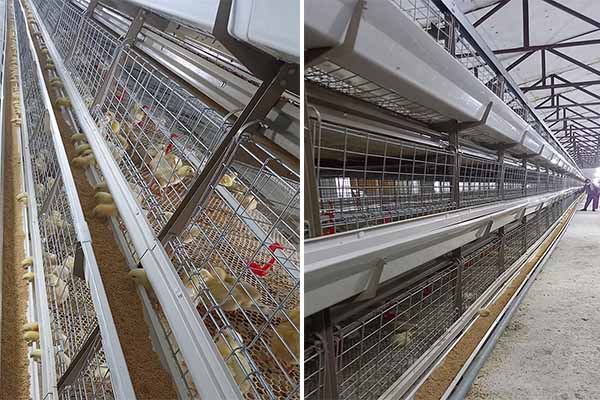Optimizing Broiler Chicken Cages for Large Farms in Kenya
Time : 2025-06-25
Broiler chicken farming has seen significant growth in Kenya, with large-scale farms increasingly adopting advanced poultry equipment to enhance productivity and efficiency. One of the key components in this setup is the broiler chicken cages. This article delves into the selection, design, and maintenance of broiler chicken cages tailored for large farms in Kenya, ensuring a high-quality and professional approach to poultry management.
Understanding Broiler Chicken Cages
Broiler chicken cages are designed to provide a controlled environment for broiler chickens, which are bred for meat production. These cages are crucial in maintaining the health and well-being of the birds, as well as optimizing growth rates and meat quality.

Types of Broiler Chicken Cages
There are several types of broiler chicken cages available, each with its own set of advantages and disadvantages. For large farms in Kenya, the following types are commonly used:
- Deep Litter Cages: These cages are designed to allow chickens to roost and nest. They are suitable for smaller farms but may not be ideal for large-scale operations due to the increased risk of disease and ammonia buildup.
- Conventional Cages: These cages are equipped with a feeding system, watering system, and aeration. They are suitable for large farms and provide a controlled environment for the chickens.
- Slatted Cages: These cages have a solid floor that is slatted to allow for waste to drop through, reducing the risk of disease and improving air quality. They are highly recommended for large farms due to their hygiene and biosecurity benefits.
Design Considerations for Broiler Chicken Cages
When designing broiler chicken cages for large farms in Kenya, several factors must be considered to ensure optimal performance and efficiency:
Space Allocation
Each broiler chicken requires a certain amount of space to ensure comfortable living conditions. For large farms, it is essential to calculate the space allocation accurately. The general rule of thumb is 0.3 to 0.4 square meters per bird, depending on the age and weight of the chickens.
Airflow and Ventilation
Proper airflow and ventilation are crucial for maintaining a healthy environment in broiler chicken cages. Ensure that the cages are well-ventilated to prevent heat stress and ammonia buildup. In hot climates like Kenya, it is important to have adequate shade and ventilation systems to keep the chickens cool.

Feeding and Watering Systems
Efficient feeding and watering systems are essential for maintaining the health and growth of broiler chickens. Large farms should consider automated feeding and watering systems that provide consistent access to food and water, reducing the risk of waste and ensuring that all birds receive adequate nutrition.
Sanitation and Biosecurity
Sanita tion and biosecurity are critical in preventing the spread of diseases among broiler chickens. Design the cages with easy-to-clean surfaces and incorporate biosecurity measures such as footbaths and isolation pens for sick birds.
tion and biosecurity are critical in preventing the spread of diseases among broiler chickens. Design the cages with easy-to-clean surfaces and incorporate biosecurity measures such as footbaths and isolation pens for sick birds.
Maintenance and Upkeep
Regular maintenance and upkeep are essential for ensuring the longevity and efficiency of broiler chicken cages. Here are some key maintenance practices:
Cleaning and Disinfection
Regularly clean the cages and disinfect them to prevent the buildup of harmful bacteria and pathogens. Use appropriate disinfectants and follow the manufacturer’s guidelines for the best results.
Inspection and Repair
Regularly inspect the cages for any signs of wear and tear, and repair any damaged parts promptly. This will prevent accidents and ensure the safety of the chickens.
Equipment Replacement
Over time, certain components of the cages may need to be replaced. Keep a record of the equipment and schedule regular replacements to maintain optimal performance.
Conclusion
Implementing the right broiler chicken cages for large farms in Kenya is crucial for successful poultry farming. By considering the type of cage, design, and maintenance, farmers can create an environment that promotes the health and growth of their broiler chickens, ultimately leading to increased productivity and profitability.
As the poultry industry continues to grow in Kenya, investing in high-quality broiler chicken cages will be a key factor in ensuring sustainable and efficient farming practices.











